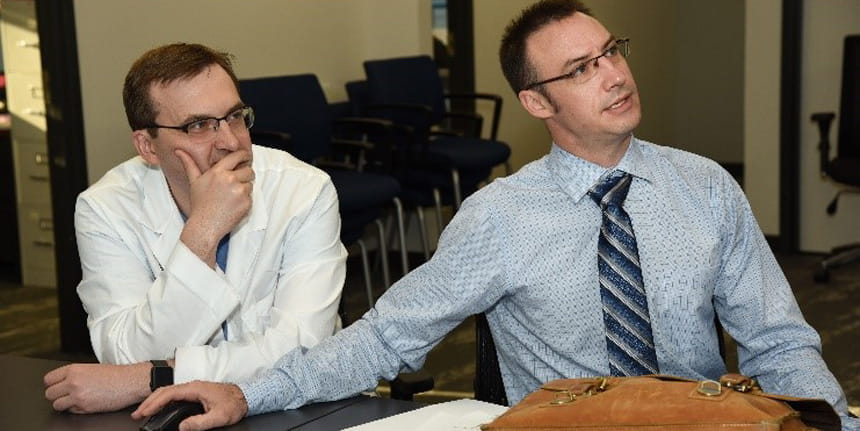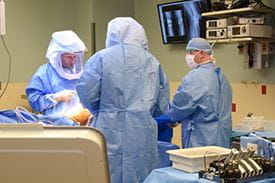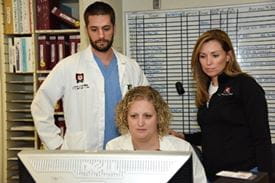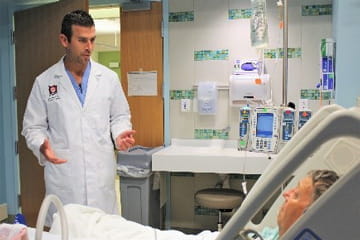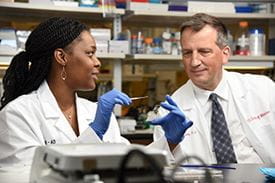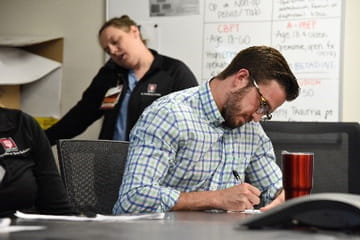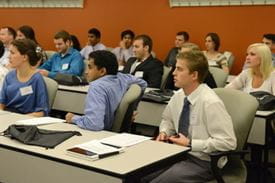The Department of Orthopaedic Surgery participates in the medical education curriculum for third- and fourth-year medical students at Indiana University School of Medicine – and rotating students from other medical schools – through the required surgery clerkship and advanced clinical electives.
These programs are designed to give those interested in treating the musculoskeletal problems of the human body a chance to explore orthopaedic surgery as a career while receiving impeccable training that will make them competitive for residency.
Students will have the opportunity to learn from faculty members working out of some of the top hospitals in downtown Indianapolis, including two Level 1 trauma centers at IU Health Methodist Hospital and the Sidney and Lois Eskenazi Hospital, as well as the nationally-ranked Riley Hospital for Children at IU Health. Rotation locations also include the Richard L. Roudebush Indianapolis VA Medical Center and multiple IU Health hospitals and surgery centers around Central Indiana.
Students from all IU School of Medicine regional campuses can take part in the electives in Indianapolis. If you have any questions about our medical education program, contact Hollyn Mangione.
